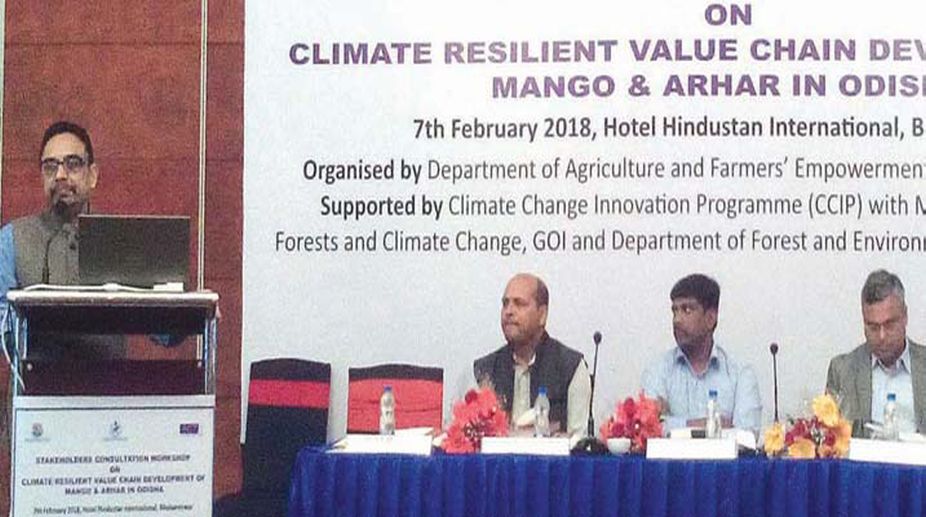‘Farmers want a fair price’
Hannan Mollah, 78, general secretary of the All India Kisan Sabha (AIKS), played a key role in the farmers movement that followed the passage of the three controversial farm laws.

“We cannot double farmer’s income without focusing on crops like pulses and horticulture as well as value addition,” said principal secretary of agriculture and food production Mr Sourav Garg. Inaugurating a workshop on climate resilient value chain development of Mango and Arhar here on Thursday, Mr Garg said due to maximum focus on paddy, in Odisha, the other crops are neglected and the state is dependent on other states for several agricultural products.
While farmers here are strugglign to increase their income, we are buying from other states. Climate change had caused chaos to traditional agricultural calender . However, he was quite optimistic to highlight preparedness of the government in creating resilient seed infrastructure, resilient infrastructures for storage and transports, improvement in contingency planning and promotion of climate resilient crops to better adapt to climate change.
The Climate Change Innovation programme (CCIP) funded by Department for International Development (DFID), UK has been working in partnership with the the state government since 2014 to integrate climate change into policies, plans and budgets. It also aims to contribute to Odisha’s capacity to attract and leverage climate change related investment. The stakeholder consultation was organised on Climate Resilient Value Chain Development with the Department of Agriculture and Farmers’ Empowerment, Govt. of Odisha, for a deeper understanding of the context, opportunities and challenges for climate change governance in Agriculture in Odisha.
Advertisement
Dr Ashok Singha,MD CTRAN, said that the project intends to strengthen the capacity of the Agriculture Dept to design, and disseminate climate resilient agriculture practices and value chains of mango and arhar through extensive hand holding support for design and training at various stakeholder levels at both the government and the farmer level.
He also pointed out that climate change could reduce annual agricultural incomes in the range of 15per cent to 18per cent on average, and up to 20per cent to 25per cent for un-irrigated areas. He said that it is possible to increase the income of the farmers in field crops like pulses by 5-6per cent and in fruit crops by 9-10per cent in Odisha if they are sensitised properly. Dr SS Dey, MD APICOL highlighted various government schemes for value addition in Mango and Pulses.
Dr M Muthukumar, IAS, Director Agriculture and Food production highlighted the strategy the government of Odisha is adopting to reduce post-harvest loss and increase the income of the farmers. Mr S Kar, Dy CEO ORAMAS highlighted challenges in marketing of agricultural produces.
DGM Nabard, Mr P K Mahapatra highlighted various aspects of value chain financing in mango and their successful initiatives in FPOs and WADI programmes. About 10 participants from the industry, farmers, academics, media personnel, civil society, and banks attended the event. Mr Soumik Biswas of DFID-CCIP offered vote of thanks and hoped that this stakeholders’ consultation workshop shall help in formulation of an ideal operational strategy for overall development of mango and arhar value chain in Odisha.
Advertisement